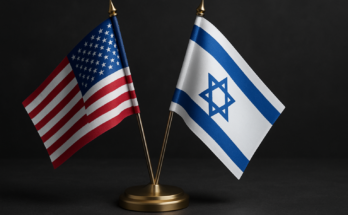Informed choice is the ability to make decisions based on accurate, full, and honest information. It is what gives people control over their lives in a democracy. Without it, freedom loses its meaning. What remains is a false sense of participation, where consent is shaped by half-truths and silence.
This idea is not new, but it is under serious threat today. Truth is no longer a common ground. It is debated, filtered, and at times, rewritten to fit the needs of those who hold power. In this struggle, the media plays a central role — not always as a defender of facts, but often as a gatekeeper that decides which version of reality reaches the public. When the media turns into a tool for shaping narratives instead of reporting facts, informed choice begins to collapse. The public is left with stories that may serve power more than truth.
Across the world, political leaders, big companies, and media houses have found ways to shape what people think. They do not need to ban speech openly or throw critics in jail to kill free will. All they need to do is control the flow of information. If people are fed only one side of the story, or worse, lies dressed up as facts, then their choice is no longer real. It becomes a guided act, made within a narrow field of ideas picked by someone else.
History gives us many lessons. The U.S. entry into the Vietnam War is a clear one. The American public was told that North Vietnamese boats had attacked U.S. ships in the Gulf of Tonkin. This story was used to justify a full-scale war. Later, it was found that the attack either did not happen or was badly misreported. Thousands of lives were lost in a war that many would have never supported if they had known the truth.
A few decades later, the world watched another repeat of the same trick. This time it was Iraq. American leaders claimed that Saddam Hussein had weapons of mass destruction. This message was repeated across television screens and newspapers. Questions were drowned out, and the march to war began. No such weapons were found, and by the time the truth came out, the damage was done. Iraq was broken, lives were lost, and public trust had once again been betrayed.
This kind of misuse of information is not limited to the West. In India, news media often shape public opinion along political lines. When violence breaks out between communities, the reporting is sometimes selective, charged with emotion, and used to push one political narrative over another. Instead of calming the situation and helping people understand what really happened, some news channels pour fuel on the fire. They shout, accuse, and divide, all while claiming to serve the public.
In all these cases, one pattern is clear: people are denied a full picture of the truth. Their thoughts are shaped not by facts, but by the needs of those who control the message. This is where journalism is meant to step in. True journalism asks hard questions. It checks those in power. It gives voice to the unheard and light to the hidden. It does not take sides in politics or chase ratings at the cost of facts.
But today, journalism too is at risk. Many large news houses are run by corporate owners with clear political ties. Reporters are under pressure to follow a line or risk losing their jobs. Investigative stories are dropped or buried. Sensationalism is rewarded, and truth is treated as a luxury. In such a setting, informed choice begins to die quietly.
This crisis should worry everyone. A democracy is not built on votes alone. It stands on the ability of people to think for themselves. If that power is taken away — if we are told what to think, what to fear, and who to hate — then the idea of freedom becomes hollow.
People must demand better. Journalists must find the courage to resist pressure. Readers and viewers must ask more from their news sources. Truth must not be something we stumble upon by chance; it must be something that is fought for.
The road ahead will not be easy. The forces that profit from lies are powerful. But the struggle is not new. Every time people have stood up and asked for the truth, they have moved history. It is now our turn to do the same. Not with noise, but with quiet resolve. Not with blind belief, but with open eyes.
Informed choice is not a gift. It is a right. And like all rights, it survives only when people are willing to protect it.



